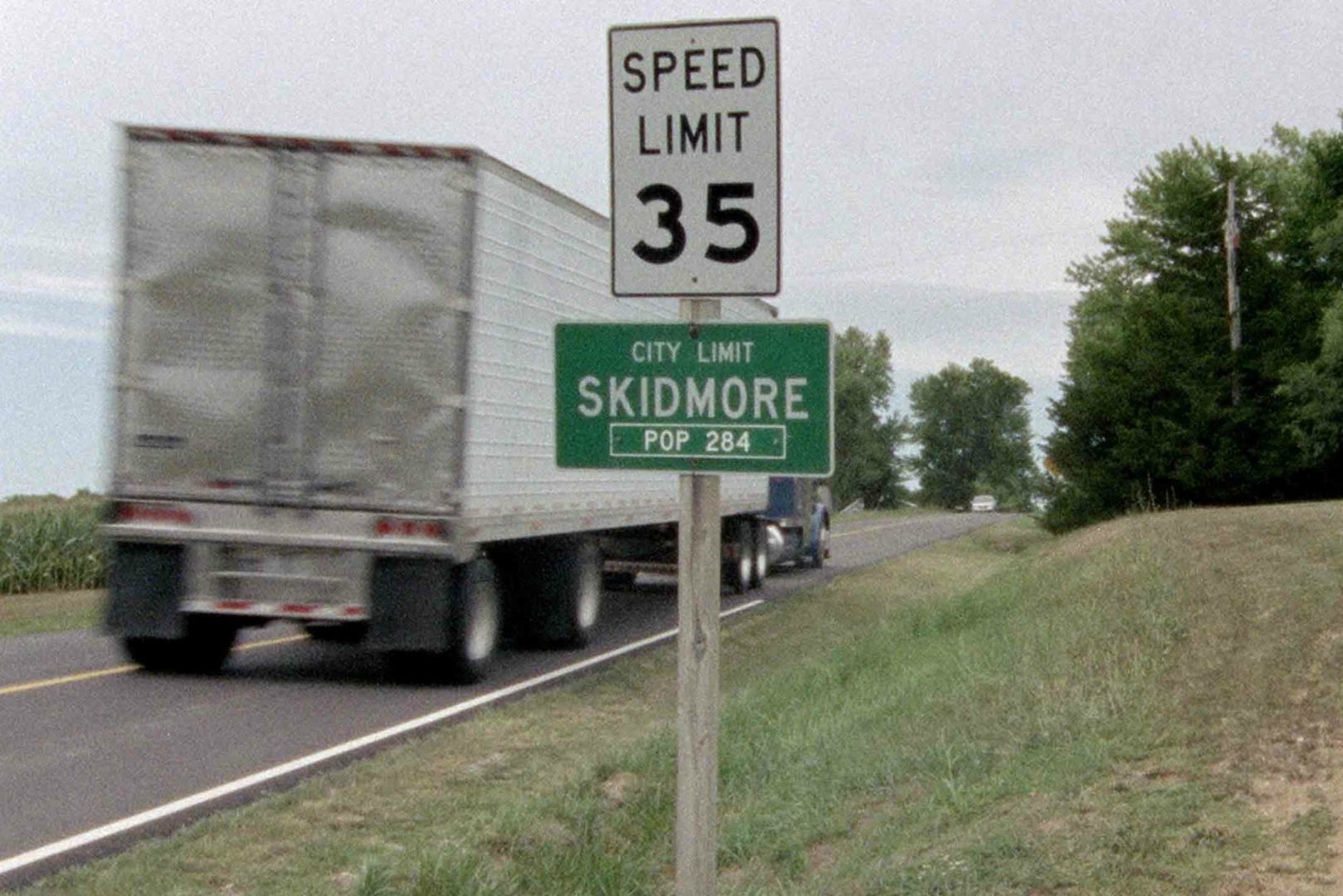Avi Belkin, the director and executive producer behind SundanceTV’s (currently streaming) true crime series No One Saw a Thing, has described his six-part look at a nearly four-decade-old cold case as a Rashomon-style inquiry. The Israeli director – whose Mike Wallace Is Here premiered at Sundance back in January and in theaters just this past July – revisits the 1981 murder of “bully” Ken Rex McElroy (and the multiple violent incidents that followed his death) in Skidmore, Missouri by going to the small town and interviewing those who were there at the time. Literally. For though no one was ever charged with shooting McElroy in the head, while his wife sat beside him in his truck, there were by some estimates around 60 witnesses to the killing. And yet, once investigators came calling the entire town closed ranks. No one was convicted back then because “no one saw a thing.”
Combining archival news footage – the event made international headlines – with contemporary interviews with the now elderly Skidmore residents, Belkin isn’t so much trying (or able really) to get at the “truth” than to explore the greater issue of vigilante justice. And, more importantly, its consequences for subsequent generations. For even as town folks got away with the McElroy murder they couldn’t escape the “curse” that their complicity would unleash. McElroy may have been an evil bully who terrorized residents – or not, according to the wife and kids who had to live with the fallout from his death – but his murder was only the first of three horrible homicides to come. Only the last was ever solved.
But collective silence – including that of law enforcement – is but one ingredient in successfully avoiding accountability. Perhaps the most damning words come from prosecuting attorney David Baird, a fresh-faced lawyer at the time of the murder who was in way over his head, who seems to inadvertently indict himself. Youthful inexperience aside, Baird passes the buck to the closemouthed residents themselves, explaining to Belkin’s lens that he couldn’t get anyone to talk, which ensured he wouldn’t be able to convict. And his job just wouldn’t allow him to bring charges unless he thought he could convict.
While the Tel Aviv born-and-raised Belkin can be forgiven for not challenging Baird on his reading of the law, this is obviously a ridiculous, and dangerous, excuse. A prosecutor’s job is not to decide whether to convict – that’s the job of a jury! Baird’s job was to bring charges against the person or persons the evidence pointed to. And there was indeed ample evidence – including that of one eyewitness who was more than willing to speak up. McElroy’s wife.
Indeed, I would argue that prosecutorial cowardice may have been Skidmore’s original sin. (Which in itself is noteworthy since it’s usually prosecutorial overzealousness that makes the news.) Once Baird made that fateful decision to decline to try the case, he ushered in an era of small-town impunity. Which, in many ways, is even more unforgivable than the “cowardice” of residents who refused to speak because they were afraid for their very lives. One man’s self-serving fear for his up-and-coming reputation is this tale’s long-ignored true crime.

